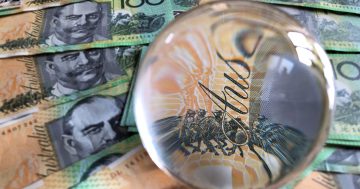
Speaking at the Press Club in Canberra this month, ATO Commissioner Chris Jordan stated that the ATO will be cracking down on illegitimate work-related expenses claimed by individuals this tax season.
We’re all aware that tax deductions are the next best thing to not having to pay tax at all – after all, maximising tax deductions in your individual tax return means maximising the refund of your hard-earned cash.
But how confident are you with the legitimacy of your allowable tax deductions? Are you sure you’re entitled to your claims? Do you have sufficient evidence to support your deductions?
If you’ve ever had sleepless nights after submitting your tax return, use these 6 tips to bulletproof and maximise your tax deductions:
1. Keep receipts. Receipts or tax invoices are the best proof of your deductible purchases. You are generally required to keep these for 5 years. If you’re claiming depreciation (i.e.: a computer), don’t bin the receipt until 5 years after the last year the item is depreciated. Fading receipts will not last 5 years, so photocopy or scan and store them in your computer to save you trouble down the track.
2. Use a debit/credit card. Using a single debit/credit card helps you pick up deductible purchases with ease at tax time. The added benefit is you can always ask for a duplicate copy of the bank/credit card statements or access them online. If you happen to have misplaced the original receipt, the bank/credit card statement is a legitimate reference point for many retailers to track down the transaction and reproduce an invoice.
3. Claim deductions that do not require receipts. Receipts are not required as long as you have kept a diary and your claims do not exceed $300 in total. This includes parking fees, toll charges and other work related expenses. Special rules apply to laundry and home office expenses in which you can claim up to certain amounts ($150 for laundry and $200 for home office) without receipts, and these expenses are included in the $300 limit. In addition, if you are paid a travel allowance you can claim a ‘reasonable amount’ prescribed by the ATO without substantiation.
4. Keep a log book for your car or claim cents per kilometre. Car expenses are often the biggest work-related deduction but have never been easier with apps that can help you easily track your kilometres. If you use the logbook method, you can claim the business use percentage of actual expenses, including: fuel, rego, insurance, maintenance, interest and depreciation. A logbook covering all business and non-business trips must be maintained for a continuous period of 12 weeks. Then, the business-use percentage based on the logbook is valid for 5 years. If you don’t have a log book but can estimate your business kilometres, you can claim up to 5,000 kilometres using the cents per kilometre method.
5. Apply common sense. Be sure to “self-audit” your deductions before lodging your tax return. Apply common sense – it wouldn’t seem plausible to claim a $10,000 business travel against a $40,000 salary, but the same deduction may be reasonable if you earn $200,000 a year. If you are in IT, computer and internet expenses would be common deductions; if you are a sales representative, reasonable amounts of car and mobile phone expenses are expected.
6. Use the service of a reputable tax agent. DIY tax is not for everyone. A tax accountant can help you identify allowable deductions, review the reasonableness of your claims and make sure substantiation requirements are met. Just be sure to find a reputable firm and an experienced tax accountant. Stay away from offers and promises that seem too good to be true. The tax office is always keeping an eye on dodgy schemes promoted by certain tax agents – in extreme cases the entire client base of these practices have been reviewed and audited. Use the services of a reputable Canberra accounting firm to give you peace of mind when claiming deductions in your next tax return.
For help with your tax return this year, or for more information about what deductions you can make, email Andrew Sykes of RSM Australia on andrew.sykes@rsm.com.au or call 6217 0333.
Or you can book online to see one of RSM’s tax specialists by clicking here.
This is a sponsored article, though all opinions are the author’s own. For more information on paid content, see our sponsored content policy.





















